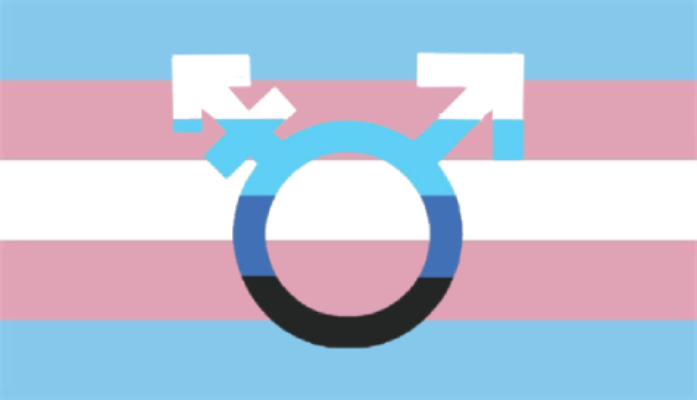My cat is a tabby and does this exact thing with his paw. Feels like love.
- 7 Posts
- 94 Comments

 21·24 days ago
21·24 days agoI’m a nurse. Does that count as “blue collar”? Because I absolutely need to shower after 12 hours in the hospital.

 5·2 months ago
5·2 months agoThank you for the thought-out response.
It doesn’t sound like site soreness, and if you’re using insulin needles, those are too small to get into the muscle anyway.
Your dose might be a little high, but I doubt it’s so high that it’s putting you at a risk for blood clots.
It honestly sounds like it could just be soreness from exercising more if you started doing that around the same time as injections, and your body isn’t used to it. It could also be an electrolyte imbalance, as some others mentioned, but if you’re young and relatively healthy that’s fairly unlikely.
I usually start with the most likely scenario and move from there. It’s pretty unlikely to be a DVT, injection site soreness, or electrolyte imbalance, so it’s likely just soreness. If you aren’t already, try adding some light stretching before or after you exercise. Applying heat should help, too, if it’s just muscle soreness. I would bring all this up with your doctor so they are able to rule out the more serious stuff, but I would not be overly concerned about it.
On a somewhat related note, when looking up medical information I would stick with Mayo Clinic or Cleveland Clinic for general medical stuff. For trans specific info, Fenway Health is the gold standard (imo), someone linked to them in a different response. You can also check WPATH standards of care 8, but that’s meant as more of a reference for medical professionals and it might be a bit dense.
Please let us know how it goes, and keep asking questions! It’s best to get from medical professionals, but sadly folks like us don’t always have that luxury.

 10·2 months ago
10·2 months agoEstrogen does not dilate blood vessels, and vasodilation won’t cause pain. It’s very unlikely that the hormone is causing the pain.
I have a few questions, if you don’t mind? You said you are doing the injections subcutaneous. Where are you injecting? What length of needle are you using? Subcutaneous injections are relatively painless and shouldn’t be causing any of the issues you are describing, but if you’re using a needle that is too big or injecting in a bad spot the pain could be related to injection site soreness.
Pain in the legs and below the knee could be a sign of deep vein thrombosis. It’s very unlikely, but estrogen can make you more susceptible to blood clots. You are at higher risk for this if you smoke cigarettes (especially if you’re over 35), if you have a more sedentary lifestyle, or if your serum estrogen level is too high. Subcutaneous injections tend to lead to higher serum estrogen levels, which can put you at a higher risk for blood clots.
You said you are DIY, is anyone checking your estrogen levels? What dose of estrogen are you taking, and how often?
It’s pretty unlikely the pain is from a DVT, but that is a very serious complication you need to rule out (a dislodged clot from a DVT that travels to your lungs can cause a pulmonary embolism, which can potentially be fatal).
I hope this doesn’t come across as condescending, but these are the questions I would ask if you were a patient.

 6·2 months ago
6·2 months agoYou need a color correction cream to put on prior to your foundation. Orange is the best if you are pale skinned with dark facial hair. Don’t be afraid to go with a true orange color - that’s how you get it to cancel out the (typically) blue shadow you are seeing.
Wait until you learn about the Honored Matres.
One of her symbols is an 8-pointed star. I like to wear one as a necklace as a low key way to display my pride and still be safe.

 7·3 months ago
7·3 months agoAs a trans woman, being fetishized is pretty much the only option I have if I want to date men. Sad to hear trans men deal with this too.
I tried to, I’m not sure where? The link I followed did not seem to let me, but as I said, sometimes I struggle with tech.
Do you know where I could find a link?
Maybe I’m dumb, but I can’t access this

 51·4 months ago
51·4 months agoThe Amazon series is fan fiction. This is part of the background story Tolkien wrote.
I’m not really interested in either, as they are both soulless capitalist cash grabs, but I think this has the possibility of being a decent (although completely unnecessary) film .

 3·4 months ago
3·4 months agoJust heard Plaineclothes Man for the first time last week. I love it when I find new music that really speaks to me, there’s so much good stuff out there right now.
The job was to help develop the program and department, at least that’s how they sold it to me. I was specifically told management is receptive to input from my position, and it was well within my purview to consider these issues. And, given that I don’t think ever worked a full 40 hour week, I wouldn’t say I did anything “double time”.
I did give them a reasons to get rid of me, in that I showed there wasn’t actually enough clinical level work for a nurse at this position, at least with how they structured it
Doubly so, because my nursing certification is an associate level. Everywhere I looked requires a Bachelors.
I don’t think it helps the manager I reported to doesn’t work with trans patients, and I only saw her when I needed something (like an IT request). Definitely put her subconscious interpretation of me as “someone needy”.
Have an appointment tomorrow. Don’t know if it constitutes legal discrimination, but I’m almost tempted to bring it even if it’s not a slam dunk. They care so much about reputation a lawsuit would hurt them more than I ever could.
Thank you. Already had a meeting scheduled with a lawyer tomorrow.
I just wanted to do some good. I didn’t even get a chance to pass off my patients.




I don’t really have any advice or anything, but I hope you can find some reason to keep going. It sucks feeling alone, even more so when you’re with other people.
Transitioning fucking sucks. Even if you have good results, it’s a mess to deal with, physically and socially, and those difficulties make it mentally taxing as well. Like a lot of social media, we tend to only see the really exceptional cases, and not the reality a lot of us will live with.
I wish I had something to say that could take your pain away, but I don’t. At some point, we all have to find a reason to keep going for ourselves. For me, it’s my cat. It’s nothing, in the grand scheme of things, but I’m all he has, and that’s enough to keep me going. At least for today.
Keep reaching out. Keep trying. In the end, that’s all we can really do.